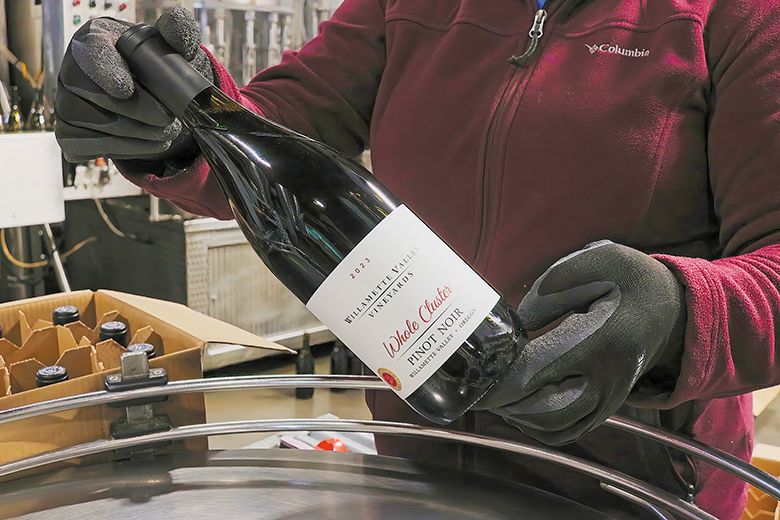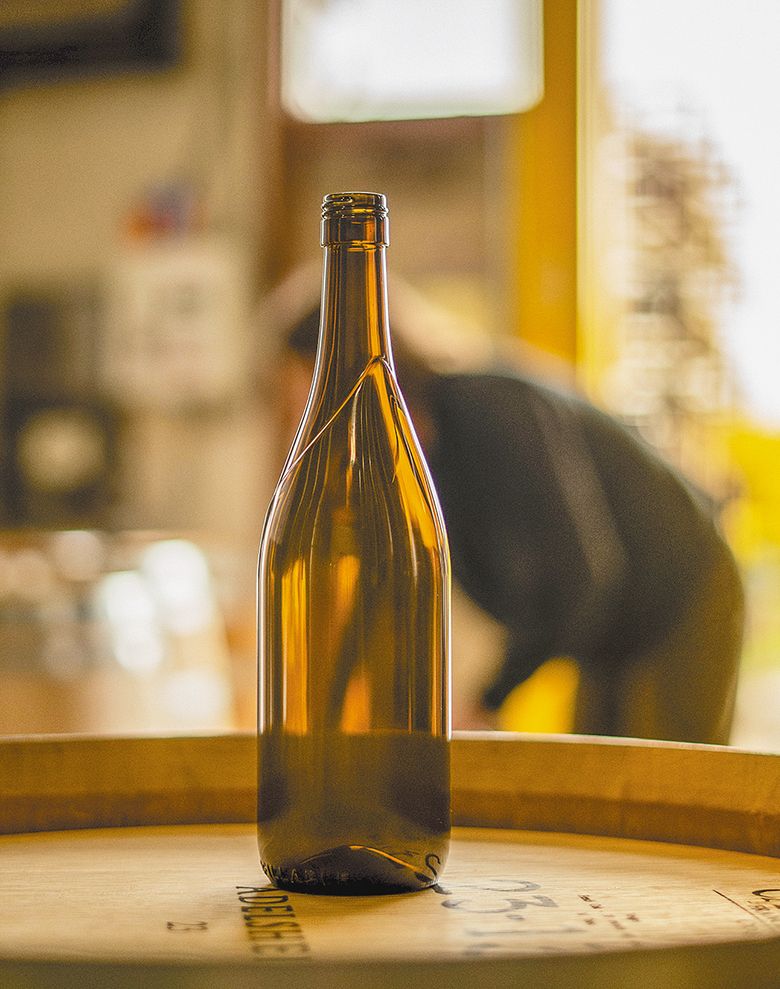Revino Revs Up
Consumers can now purchase Oregon wine in refillable bottles


By Greg Norton
After spending years envisioning a reusable wine bottle system, Revino’s refillable bottles of Oregon wine arrive on retail shelves this summer.
Revino created the nation’s only wine bottle specifically designed for reuse, an unprecedented, industry standard-setting product. After enjoying a wine, the empty Revino bottle is returned, cycled through a washing process, refilled and re-sold.
By spring, 16 Oregon wineries had completed bottling runs, with an anticipated 60,000 cases of Revino glass filled by the end of this season. Reusable up to 50 times, these 720,000 bottles avoid almost two million pounds of CO2 emissions and divert 320 tons of material from landfills after just three fills, according to Keenan O’Hern and Adam Rack, Revino’s co-founders.
The unique design makes it easy to identify a Revino bottle. Look for an elegant curve impressed into the bottle’s neck, the word “refillable” embossed along the bottom and, within the punt, a small outline of Oregon state.
PARTNERS LARGE AND SMALL
Participating Oregon wineries range from boutique to among the state’s largest producers.
Newberg’s Et Fille Wines became one of the first to fill Revino bottles. “We were already using locally sourced eco-weight glass so implementation was quite simple,” said co-founder Jessica Mozeico. She praises the Willamette Valley Wineries Association with spreading the word among vintners and assisting in the planning process. Et Fille used Revino’s standardized Burgundy-style bottles for all its spring releases. “There were no logistical hurdles to bottling,” Mozeico reported.
Jess Pierce, general manager at Walter Scott Wines, noted their winery bottled three wines in Revino glass: La Combe Verte Pinot Noir and Chardonnay, and Cuvée Ruth Pinot Noir. Pierce also used them for her Riesling-only label, Pierce Wines. She first encountered refillable glass bottles in Germany’s Mosel region, where she regularly exchanged empty mineral water bottles when buying full ones. Stateside interest grew by bottling wine in refillable beer bottles at Portland’s Coopers Hall, where Rack was employed. Pierce feels Revino aligns perfectly with Pierce Wine’s tiny production and local distribution. “Having Oregon-produced glass and packaging is a big deal for me.”
Willamette Valley Vineyards filled over 1,400 cases of the reusable bottles with 2023 Whole Cluster Pinot Noir. In a press release, founder and CEO Jim Bernau placed the effort alongside the winery’s longstanding sustainability pledge, including “the use of wind and solar power, natural cork stoppers and other low-impact and certified LIVE methods.” This wine is destined for Willamette’s many tasting rooms in Oregon and Southwest Washington, joining Revino’s developing network of collection points where consumers may drop off their empty bottles. Willamette’s existing delivery trucks will begin collecting returned Revino bottles, with a mass consolidation at the estate winery in Turner.
EMBRACING ALTERNATIVES
Packaging, the primary energy needed to produce and ship empty glass to bottling locations, remains one of the largest contributors to a winery’s carbon footprint. This requires more energy than transporting the finished product to distributors and retailers. The industry is responding by adopting lighter-weight bottles and alternative packaging– cans, tetra paks and “bag-in-a-box.” Revino’s method allows for the preeminence of glass while restoring refillable beverage containers previously used in the U.S. and still common overseas.
LOOKING AHEAD
As Oregon wine lovers buy their favorites in Revino bottles this year, the collection network continues expanding, along with a washing facility. Revino is discussing label removal improvements both with wineries and print companies.
Revino is now seeking industry opinion in developing a standardized Bordeaux-style bottle. Its shape, weight and size must be compatible with bottling-line machinery yet durable enough to withstand washing and reuse. This shape will be useful as Revino’s system expands into California and Washington. Bottles with screw-top closures are also planned.
A SUSTAINABLE AND THRIVING FUTURE
After years of collaborative planning, the system’s refillable success lies now in wine lovers’ hands. It is too soon to know how many bottles will be returned to complete the circular ecosystem. The company continues to raise awareness by supplying informational resources for winery websites and tasting rooms.
“Revino goes beyond a mere business venture,” says O’Hern. “This is a shared journey toward a thriving, more sustainable future.”
Mozeico notes, “We’re now focused on educating our consumers to return their empty Revino bottles to us so they can go back into the refillable ecosystem.”
Greg Norton is a freelance writer with a broad background in nonprofit communications and the arts. He studied journalistic writing through the UCLA Extension and has traveled to wine regions around the world. Greg is a Certified Specialist of Wine and received the Level II award from the Wine and Spirits Education Trust. When not writing about wine, he can be found pouring it in the tasting room at Campbell Lane Winery near West Linn. Read more by Greg at www.onthevine.blog.










